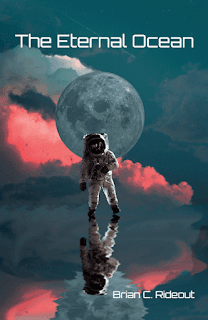The story features a character, Teddy Lovelace, whose letters to home also appear in the setting book, and a clue about his fate during the disaster that destroyed the first colony on Rusalka.
He's intentionally a man of his era: a little dull, cautious, and a bit of a sad sack. Not to mention the kind of nice guy who desperately needs to hear Frank Zappa's "Broken Hearts are for Assholes", only that song is probably blocked on his colony.
I wanted to share it here as a change of pace from my usual content.
There is a little gore and oblique sexual references in this one, as fair warning.
A Day in the Life
Ted woke up as the lights slowly brightened in his room. He reached across the bed to the empty space beside him. He sighed sharply through his nose. He still hadn't gotten used to sleeping alone in bed alone. The time was visible on his ceiling
"You woke me up two minutes early," he grunted at his apartment. It responded in a feminine mid-Atlantic:
"You have listed getting to work on time a high priority. You have struggled for five days to get out of the door at your designated leaving time. Waking you two minutes early will make your day run more smoothly and reduce stress. You have had eight hours and thirteen minutes of sleep. This time is within the Copernicus Healthy Living™ Program tolerances."
He grunted. The "™" wasn't read aloud, but the computer had a way of saying trademarked titles that made you hear it anyway.
"I'm considering changing my health program subscription."
"You are very grumpy this morning," his apartment replied. "You should not make subscription or purchase decisions until you have had breakfast and your shower."

.jpg)







